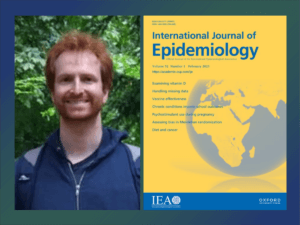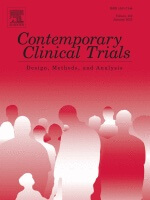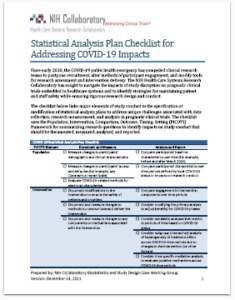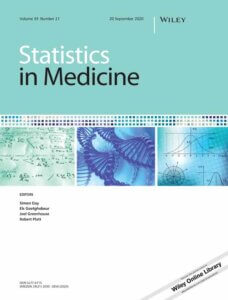 In this Friday's PCT Grand Rounds, Rui Wang of Harvard Medical School will offer the final session in our special series, Advances in the Design and Analysis of Pragmatic Clinical Trials, with "Methods for Handling Missing Data in Cluster Randomized Trials." The session will be held on Friday, January 5, at 1:00 pm eastern.
In this Friday's PCT Grand Rounds, Rui Wang of Harvard Medical School will offer the final session in our special series, Advances in the Design and Analysis of Pragmatic Clinical Trials, with "Methods for Handling Missing Data in Cluster Randomized Trials." The session will be held on Friday, January 5, at 1:00 pm eastern.
Wang is an associate professor of population medicine and the director of the Division of Biostatistics in the Department of Population Medicine at Harvard Medical School and the Harvard Pilgrim Health Care Institute. She is also an associate professor in the Department of Biostatistics at the Harvard T.H. Chan School of Public Health. She is a longtime member of the NIH Pragmatic Trials Collaboratory's Biostatistics and Study Design Core Working Group.
This session's moderator, Fan Li, is an assistant professor of biostatistics at the Yale School of Public Health.
This special Grand Rounds series includes moderated webinar discussions that bring together biostatisticians, clinical trials methodologists, and investigators to discuss challenges and share lessons learned in the design, implementation, and analysis of pragmatic trials. Download the series flyer and see the full schedule below, including archived webinar recordings and slides from previous sessions.
- October 6, 2023: Hybrid Studies Should Not Sacrifice Rigorous Methods (David M. Murray, PhD; Moderator: Jonathan Moyer, PhD)
- November 3, 2023: The Perils and Pitfalls of Complex Clustering in Pragmatic Trials (Jonathan Moyer, PhD; Moderator: Andrea Cook, PhD)
- December 1, 2023: Guidelines for Design and Analysis of Stepped-Wedge Trials (Jim Hughes, PhD; Moderator: Patrick Heagerty, PhD)
- January 5, 2023: Methods for Handling Missing Data in Cluster Randomized Trials (Rui Wang, PhD; Moderator: Fan Li, PhD)
All sessions are free and open to the public. No registration is required.



 In this Friday’s PCT Grand Rounds, Jim Hughes of the University of Washington will continue our special series, Advances in the Design and Analysis of Pragmatic Clinical Trials, with his presentation,
In this Friday’s PCT Grand Rounds, Jim Hughes of the University of Washington will continue our special series, Advances in the Design and Analysis of Pragmatic Clinical Trials, with his presentation,  In this Friday’s PCT Grand Rounds, Brennan Kahan of University College London will present
In this Friday’s PCT Grand Rounds, Brennan Kahan of University College London will present  In a
In a 
 In a study supported by the NIH Collaboratory, researchers developed and validated a new sample size formula for detecting heterogeneity of treatment effect in cluster randomized trials. The work was
In a study supported by the NIH Collaboratory, researchers developed and validated a new sample size formula for detecting heterogeneity of treatment effect in cluster randomized trials. The work was 